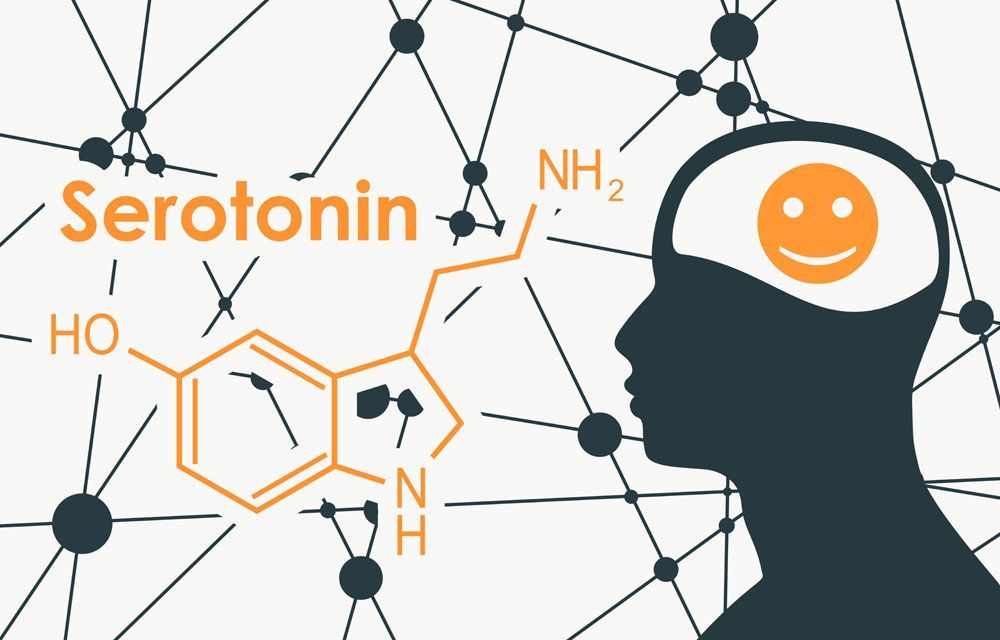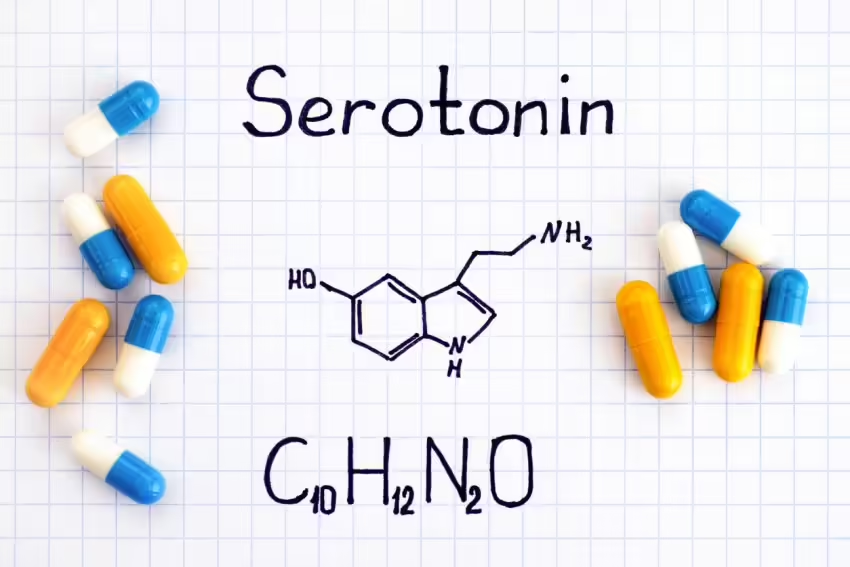Serotonin, often called the “happiness hormone,” is a crucial neurotransmitter that regulates mood, sleep, digestion, and even cognitive function. While it’s widely associated with feelings of well-being, its role in the body goes far beyond just making us happy.
In this blog post, we’ll explore:
✔ What serotonin is and how it works
✔ Its key functions in the body
✔ Natural ways to boost serotonin levels
✔ What happens when serotonin is too low or too high
✔ Common myths and FAQs
Let’s dive in!
What Is Serotonin?
Serotonin (5-hydroxytryptamine or 5-HT) is a neurotransmitter (a chemical messenger in the brain) and a hormone that influences:
- Mood & emotions (happiness, anxiety, depression)
- Sleep cycles (via melatonin production)
- Digestion & appetite
- Memory & learning
- Pain perception
Interestingly, about 90% of serotonin is produced in the gut, not the brain! This explains why gut health is so closely linked to mental well-being.
Key Functions of Serotonin
1. Regulates Mood & Reduces Anxiety
Serotonin helps stabilize mood and promote feelings of happiness. Low levels are linked to depression, anxiety, and irritability, which is why many antidepressants (like SSRIs) work by increasing serotonin activity.
2. Controls Sleep & Circadian Rhythm
Serotonin is a precursor to melatonin, the hormone that regulates sleep. Balanced serotonin levels help maintain healthy sleep patterns.
3. Supports Digestive Health
Since most serotonin is in the gut, it:
- Helps control bowel movements
- Influences appetite and nausea
- Affects gut-brain communication
4. Influences Cognition & Memory
Optimal serotonin levels improve focus, decision-making, and memory. Too little or too much can impair cognitive function.
5. Affects Pain Sensitivity
Serotonin interacts with pain pathways in the brain, affecting how we perceive pain. Some chronic pain conditions are linked to serotonin imbalances.
How to Boost Serotonin Naturally
1. Eat Serotonin-Boosting Foods
- Tryptophan-rich foods (precursor to serotonin): Turkey, eggs, cheese, nuts, seeds, tofu
- Complex carbs: Whole grains, sweet potatoes, oats (help tryptophan reach the brain)
- Omega-3s: Fatty fish, flaxseeds, walnuts
- Probiotics: Yogurt, kefir, sauerkraut (support gut health)
2. Get Sunlight & Vitamin D
Sunlight exposure increases serotonin production. Low vitamin D levels are linked to mood disorders.
3. Exercise Regularly
Physical activity, especially aerobic exercise (running, swimming, cycling), boosts serotonin and endorphins.
4. Manage Stress
Chronic stress depletes serotonin. Try:
- Meditation & deep breathing
- Yoga & mindfulness
- Adequate sleep
5. Consider Supplements (If Needed)
- 5-HTP (a direct serotonin precursor)
- SAM-e (supports neurotransmitter production)
- Magnesium & B vitamins (cofactors for serotonin synthesis)
Always consult a doctor before taking supplements.
Serotonin Imbalance: Too Low vs. Too High
Low Serotonin Symptoms
- Depression, anxiety, OCD
- Insomnia or poor sleep
- Irritability & mood swings
- Sugar cravings & overeating
- Digestive issues (IBS, bloating)
High Serotonin (Serotonin Syndrome)
This rare but serious condition occurs when serotonin levels are dangerously high, often due to medication interactions (e.g., mixing SSRIs with migraine meds or supplements like 5-HTP).
Symptoms include:
- Agitation, confusion
- Rapid heart rate, high blood pressure
- Muscle twitching, tremors
- Fever, seizures (in severe cases)
If you suspect serotonin syndrome, seek medical help immediately.
Common Myths About Serotonin
❌ Myth: “More serotonin always means better mood.”
✅ Fact: Balance is key—too much can be harmful.
❌ Myth: “Only antidepressants can increase serotonin.”
✅ Fact: Diet, exercise, and lifestyle changes also play a huge role.
❌ Myth: “Serotonin is only in the brain.”
✅ Fact: Most serotonin is in the gut!

Serotonin is much more than just the “happy chemical”—it’s vital for mood, sleep, digestion, and overall health. By eating well, staying active, managing stress, and getting enough sunlight, you can naturally support healthy serotonin levels.
Have you noticed how lifestyle changes affect your mood?
Share your experiences in the comments!

